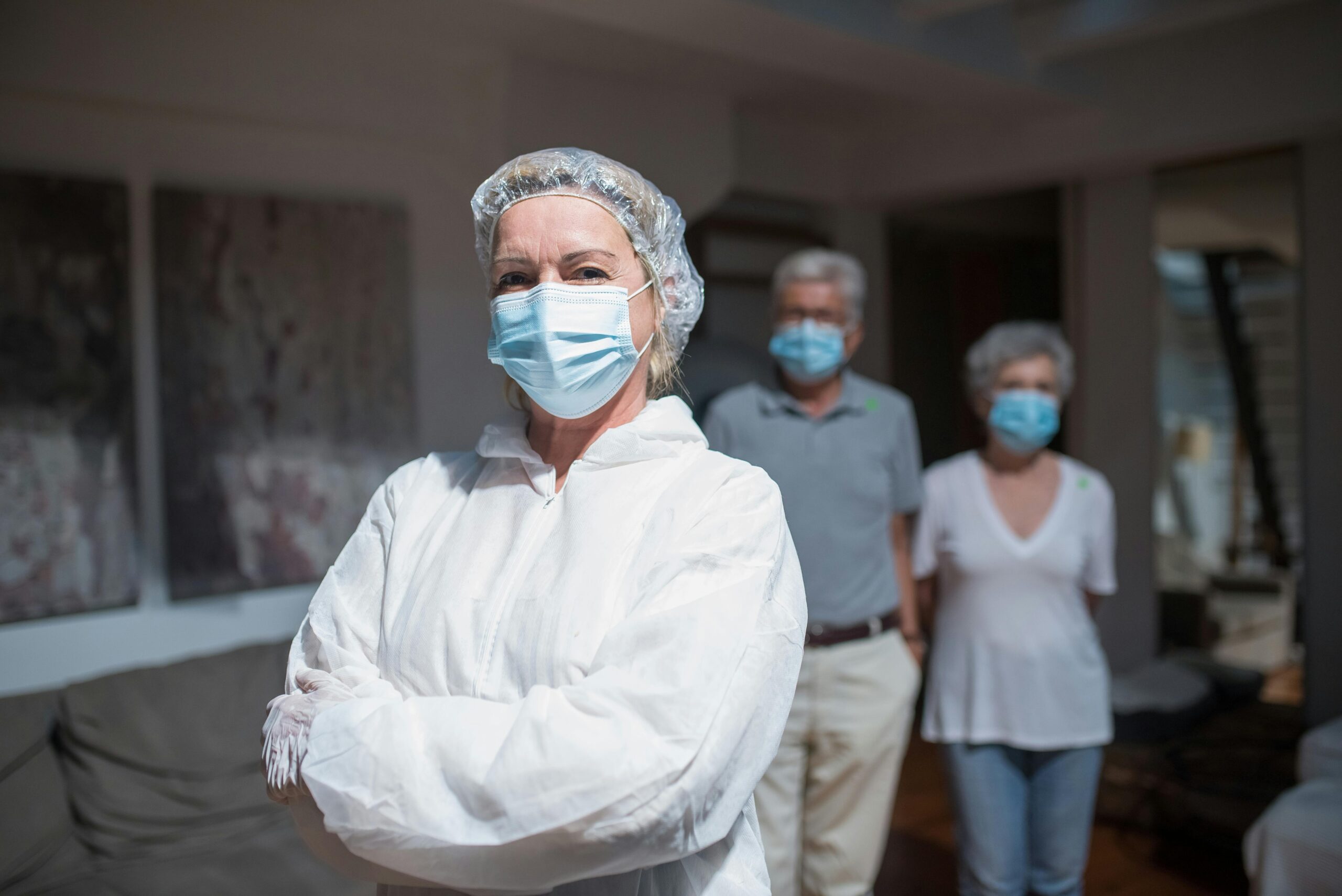Hire Certified Clinical Hemodialysis Technician (CCHT): They are vital in the Dialysis Centres industry. Hiring skilled professionals leads to better patient care and smooth operations. The right talent helps your facility provide effective support to patients and maintain high-quality services.
Why Hire a Certified Clinical Hemodialysis Technician (CCHT)?
A Certified Clinical Hemodialysis Technician (CCHT) is key for enhancing the care provided in dialysis centers. They bring expertise that can significantly improve patient outcomes and operational efficiency.
- Improve Patient Safety: CCHTs are trained to monitor patients closely during treatments. Their expertise helps in quickly identifying issues, ensuring patients receive immediate care, which improves safety and outcomes.
- Enhance Operational Efficiency: Hiring certified technicians streamlines workflows. Their knowledge of dialysis processes helps reduce downtime and ensures a smooth flow in patient treatments, improving overall center productivity.
- Meet Regulatory Standards: CCHTs are familiar with compliance requirements. Their understanding of regulations helps your center meet necessary standards, reducing the risk of penalties and enhancing your facility’s reputation.
- Increase Patient Satisfaction: Knowledgeable CCHTs provide compassionate support to patients. This technical and emotional support enhances the patient experience, leading to higher satisfaction and retention rates.
- Reduce Turnover Rates: Well-trained technicians foster a stable environment. Their expertise helps create a positive workplace, ultimately leading to lower employee turnover and better team morale.
What Are the Types of Certified Clinical Hemodialysis Technician (CCHT)?
- Dialysis Technician: Focuses on the technical aspects of dialysis machines and patient care. They perform setup, monitor machines, and assist patients throughout treatments, ensuring safe procedures.
- Dialysis Nurse: While separate from traditional CCHT roles, some CCHTs also serve as nurses. Their dual capabilities allow for advanced patient care management, especially in emergency situations.
- Clinical Educator: Some CCHTs take on training roles. They teach new technicians and other staff about procedures and equipment, ensuring consistent high-quality care throughout the center.
- Quality Assurance Technician: This role focuses on maintaining standards and protocols. They regularly assess procedures to improve safety and compliance, crucial for meeting regulatory benchmarks.
- Home Dialysis Technician: These technicians specialize in at-home dialysis care. They provide training and support to patients, ensuring they are comfortable and capable of performing procedures safely at home.
Where to Find Certified Clinical Hemodialysis Technician (CCHT)?
- Online Job Boards: Platforms like Indeed and Glassdoor allow for wide reach. However, the sheer number of applications can make it hard to find the right candidate quickly.
- Staffing Agencies: Many agencies specialize in healthcare placements. They save time by providing pre-screened candidates, but be sure to choose an agency with a strong reputation in your industry.
- Professional Networks: Using connections in the healthcare field can yield quality candidates. However, leveraging these networks requires time and relationship-building.
- Pulivarthi Group: We offer pre-vetted candidates who meet industry standards. Our tailored approach reduces your hiring time and ensures you find the best fit for your facility quickly.
What Are the Challenges Faced While Hiring Certified Clinical Hemodialysis Technician (CCHT)?
- Difficulties in Assessing Skills: It can be hard to evaluate technical competencies during interviews. If the assessment process is ineffective, you may miss out on top candidates.
- Ensuring Cultural Fit: Hiring a technician who aligns with your center’s values matters. A poor fit can lead to dissatisfaction and higher turnover rates, impacting overall team dynamics.
- Managing High Turnover Rates: The healthcare field often sees a high turnover. This instability can affect patient care, necessitating constant recruitment efforts and resource allocation.
- Complex Licensing Requirements: Navigating the regulatory landscape in hiring can be complicated. Ensuring candidates meet all qualifications and licenses is essential to avoid compliance issues.
- Time Constraints: Facilities often need to fill positions quickly. This urgency can lead to rushed hires who may not meet all qualifications, ultimately impacting the quality of care.
What Qualifications and Licenses Must a Certified Clinical Hemodialysis Technician (CCHT) Have?
- High School Diploma or Equivalent: This is the minimum educational requirement, providing foundational knowledge necessary for further specialized training in the field.
- Completed CCHT Training Program: Completing an accredited training program ensures that technicians have the skills needed to perform their duties effectively and safely.
- CCHT Certification: Passing the CCHT exam verifies that a technician is qualified. This certification demonstrates their competency and understanding of dialysis procedures and patient care.
- CPR and Basic Life Support Certification: These certifications are essential as they prepare technicians to handle emergencies during treatment. Immediate response can significantly improve patient outcomes.
- Experience in Clinical Settings: Previous hands-on experience is highly beneficial. It shows that the technician can apply their knowledge in real-world scenarios, which is crucial for patient safety and care quality.
Sample Certified Clinical Hemodialysis Technician (CCHT) Job Description
Job Overview: As a CCHT, you will provide critical support in dialysis treatments, ensuring patient safety and comfort. Key Responsibilities: Monitor patients, maintain equipment, and assist in patient education. Required Skills: Technical proficiency with dialysis machines, excellent communication, and problem-solving skills. Qualifications: CCHT certification and previous clinical experience are necessary.
Certified Clinical Hemodialysis Technician (CCHT) Interview Questions: What to Ask Certified Clinical Hemodialysis Technician (CCHT) at the Interview
- Can you describe your experience with dialysis machines? This question helps gauge technical expertise and familiarity with the equipment, which is crucial for safe patient care.
- How do you handle a medical emergency during treatment? Understanding their response to emergencies reveals problem-solving and critical thinking skills, essential for minimizing risks to patients.
- What do you find most challenging about this role? This question helps assess self-awareness and how they cope with difficult situations, which can impact team dynamics and patient care.
- How do you ensure compliance with healthcare regulations? Candidates should demonstrate knowledge of regulations, highlighting their commitment to maintaining standards necessary for safe operations.
- Can you provide an example of how you improved patient satisfaction? This explores past initiatives and insight into how they contribute positively to the patient experience, reflecting their commitment to care quality.
When Should I Hire a Certified Clinical Hemodialysis Technician (CCHT)?
Hiring a Certified Clinical Hemodialysis Technician (CCHT) is necessary during peak project demands or when services expand. If your center experiences high patient volumes or plans to introduce new dialysis methods, skilled technicians become essential. Filling critical skill gaps with certified technicians ensures continuous, safe operation while maintaining quality patient care.
How Can I Test Certified Clinical Hemodialysis Technician (CCHT) Skills?
- Conduct Role-Specific Assessments: Using practical tests tailored to the job gives insight into a candidate’s ability to perform essential tasks effectively and safely.
- Assign Real-World Tasks: Offering a short assignment mimics the typical work environment, revealing how candidates apply their knowledge and handle actual patient care scenarios.
- Review Past Project Outcomes: Discussing prior experiences and outcomes allows you to understand their problem-solving skills and decision-making processes in the context of patient care.
- Simulate Emergency Situations: Testing how candidates respond to emergencies can reveal their ability to think and act quickly under pressure, which is vital in dialysis settings.
How to Conduct an Effective Cultural Fit Assessment for Certified Clinical Hemodialysis Technician (CCHT)?
- Ask Situational Questions: Inquire how candidates would respond in different scenarios to assess their alignment with your organization’s values and culture.
- Review Alignment with Company Values: Discuss what values are important to the candidate to ensure they resonate with your organization’s mission, helping maintain a positive workplace.
- Involve Team Members in the Interview Process: Having team members participate in interviews provides diverse perspectives on cultural fit, enhancing the overall hiring process.
- Assess Communication Style: Pay attention to how candidates communicate, as strong interpersonal skills are important for a positive workplace culture and patient interactions.
What Is the Average Salary of a Certified Clinical Hemodialysis Technician (CCHT) in the US?
The average salary for a Certified Clinical Hemodialysis Technician (CCHT) in the U.S. ranges from $40,000 to $60,000 annually. Salaries can vary based on location, experience, and the type of facility. Regions with higher living costs generally offer higher salaries, and those with specialized skills may command additional compensation.
What Are Some Certified Clinical Hemodialysis Technician (CCHT)-Specific SOPs, and How to Create Them?
- Patient Monitoring Protocol: This SOP outlines steps for observing patient vitals and statuses during treatment. Consistent monitoring ensures safety and identifies issues early.
- Equipment Maintenance Procedures: This SOP includes guidelines for regular servicing of dialysis machines. Proper maintenance prevents equipment failures that could impact patient safety.
- Emergency Response Procedures: This SOP details how to act during various emergencies, ensuring all staff knows the protocols to follow, ultimately protecting patient well-being.
- Documentation Standards: Establishing clear guidelines for record-keeping ensures accurate patient histories and treatments, which are vital for compliance and continuity of care.
- Patient Education Guidelines: This SOP outlines how technicians should communicate treatment processes to patients. Ensuring clear communication enhances patient understanding and adherence to care plans.
How to Retain Certified Clinical Hemodialysis Technician (CCHT) Effectively?
- Offer Competitive Benefits: Providing health insurance, retirement plans, and bonuses can attract and retain top talent, ensuring your workforce remains stable and satisfied.
- Foster a Supportive Work Environment: Creating a culture that values communication and teamwork fosters loyalty. Employees are more likely to stay in a supportive atmosphere that encourages growth.
- Provide Professional Development Opportunities: Offering training and continuing education allows technicians to advance their skills. Support for their career growth leads to increased job satisfaction and retention.
- Encourage Feedback: Regularly seeking input from technicians on workplace practices shows you value their opinions. This inclusiveness fosters a sense of belonging and commitment to the organization.
Hire Certified Clinical Hemodialysis Technician (CCHT) with Pulivarthi Group
Partnering with Pulivarthi Group gives you access to skilled, pre-vetted Certified Clinical Hemodialysis Technicians (CCHT) tailored to your needs. Our expertise ensures you find the right fit quickly, optimizing your hiring process while reducing costs. Let us help you improve patient care and achieve your operational goals with our dedicated staffing solutions.



